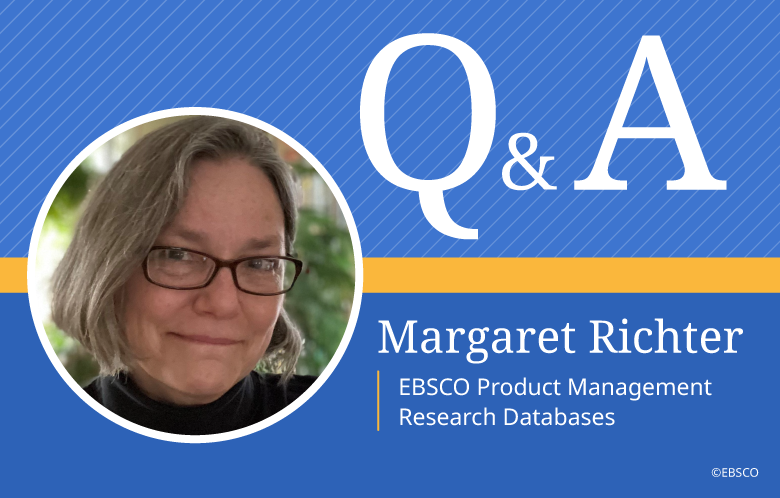EBSCO regularly creates new, region-specific databases made up of local language journals and resources to better meet the needs of libraries, students, and researchers in different areas of the world.
We asked Margaret Richter, Product Manager at EBSCO Information Services who is part of a team that leads the development of databases, to discuss the process of creating a region-specific database.
How does a region-specific database come about?
EBSCO conducts extensive market research before launching any new product. This includes evaluating the market need and size, the competitive landscape and potential content. Our regional sales teams, who are experts in understanding the needs of their territories, provide crucial insight, analysis, and feedback, whether the projected product is regional or international in scope.
Why is it important to have region-specific databases and what benefits do they offer?
Many students and researchers prefer to work in their native language. A regional database filters out the noise and allows them to do so. In addition, researchers have told EBSCO that they would like to access content generated within a specific geographic region. Regional databases support both of these needs.
Many students and researchers prefer to work in their native language. A regional database filters out the noise and allows them to do so.
Many students and researchers prefer to work in their native language. A regional database filters out the noise and allows them to do so.
How do you evaluate which content should be included?
Content included in any EBSCO database is rigorously reviewed and evaluated by subject matter experts for quality and authoritativeness. The same high standards are employed when identifying content for our regional collections. For these databases we aim to include content across a range of disciplines, from the arts and humanities to STEM, the Social Sciences and Business, in order to support the research needs of as broad a spectrum of students, researchers and scholars as possible.
What are some examples that EBSCO offers?
EBSCO offers a wide range of local databases, for example Arab World Research Source, Caribbean Search, Central & Eastern European Academic Source (CEEAS), Fonte Academica, Fuente Academica, The Belt and Road Initiative Reference Source, DACH Information and many more.
What is special about the most recently released regional database, DACH Information?
The database DACH Information places content written in German and generated in the DACH region (German-speaking Europe) center stage. The database supports the discovery of research published by regional scholars and authors while simultaneously providing insight into key regional concerns, issues, and interests.


